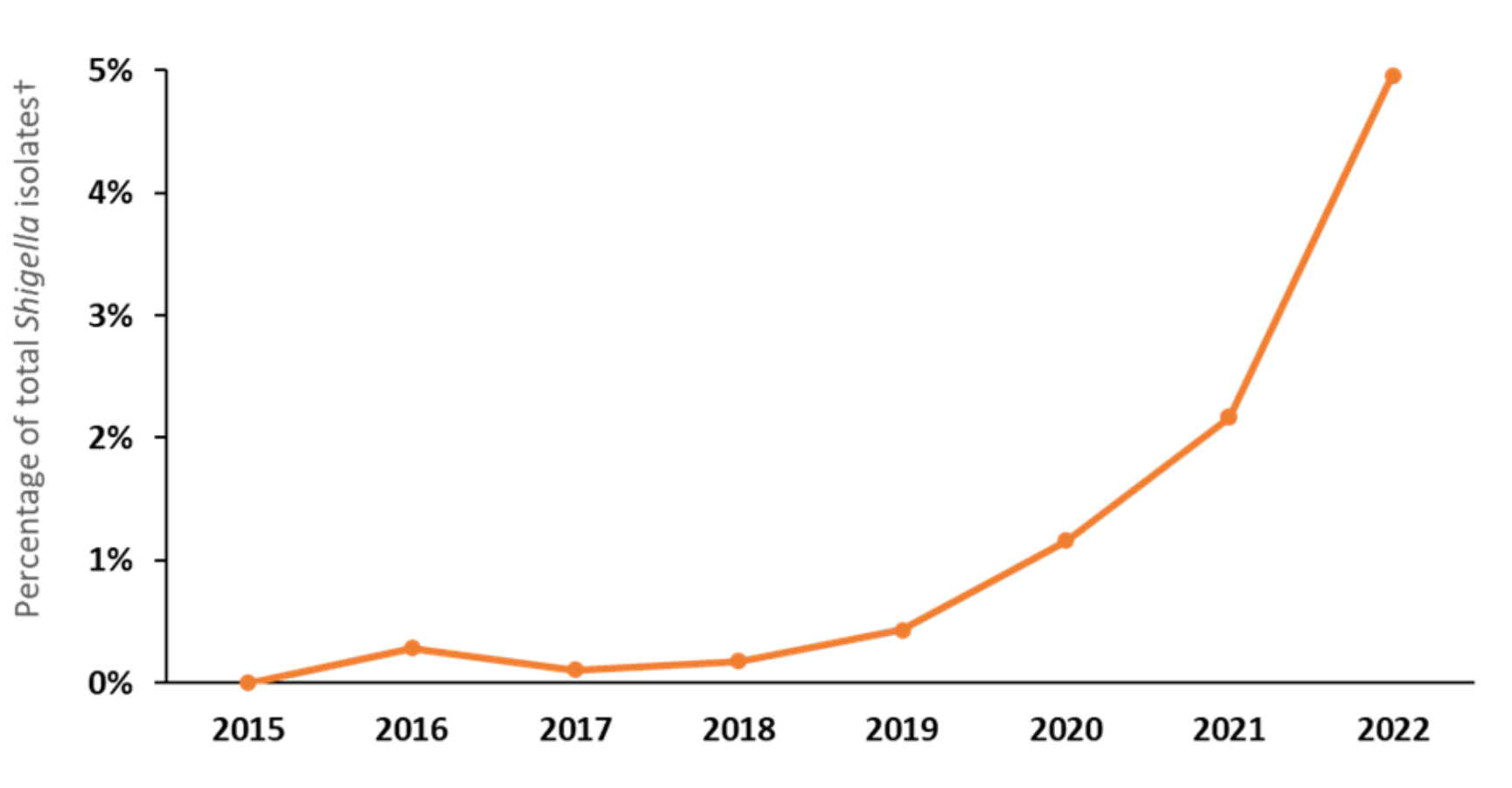
A new warning has been issued by the Centers for Disease Control and Prevention about a drug-resistant strain of the crippling stomach bug Shigella that is spreading rapidly across the United States.
Of the approximately 450,000 Shigellis infections in the US last year, the CDC found around 5 per cent of those were “extensively drug resistant”, or XDR, up from zero in 2015.
While Shigellos had predominantly been found in children under four, the CDC said it was noticing an increase in adults, in particular gay and bisexual men, the homeless, travellers from overseas and people living with HIV.
The gastrointestinal bug causes inflammatory diarrhea and the increasingly common drug-resistant strain can’t be treated with common antibiotics, the CDC said in an advisory on Friday.
Shigella is easily transmissible through person-to-person contact, or consuming contaminated food and water.
“XDR Shigella bacteria have limited antimicrobial treatment options, are easily transmissible, and can spread antimicrobial resistance genes to other enteric bacteria,” the CDC said.

The CDC said it was monitoring cases closely and is holding a briefing for health professionals on Tuesday.
Health officials said in Friday’s alert that there are no CDC recommendations for treating the drug resistant shigellosis infections in the United States.
“Healthcare providers treating XDR shigellosis should consult with a specialist knowledgeable in treating antibiotic-resistant bacteria to determine the best treatment options,” the CDC stated.
The most commonly prescribed treatments for non-resistant forms of Shigella are azithromycin, ciprofloxacin, or ceftriaxone. Apart from bloody and prolonged diarrhea, symptoms include fever and stomach cramps.







